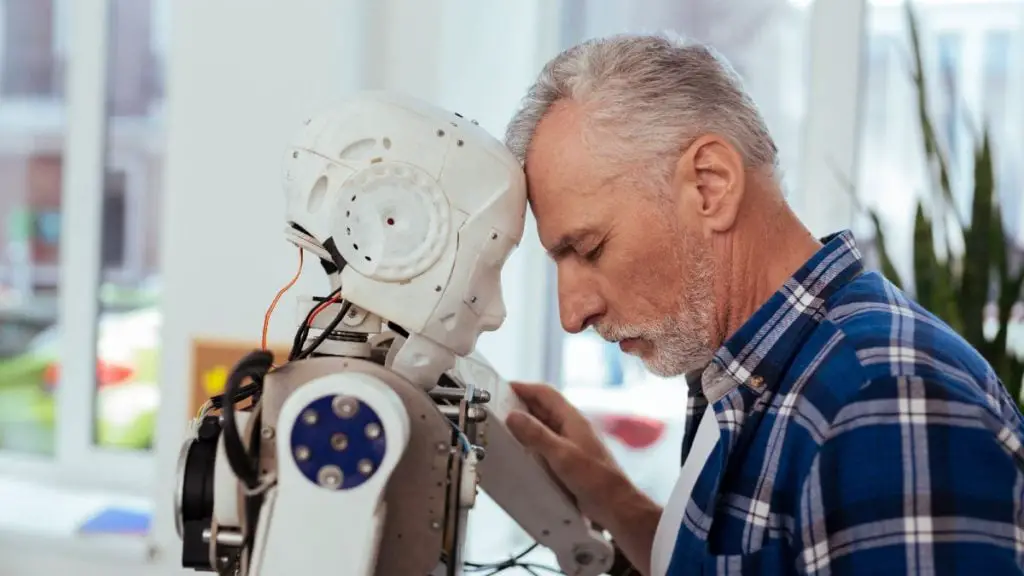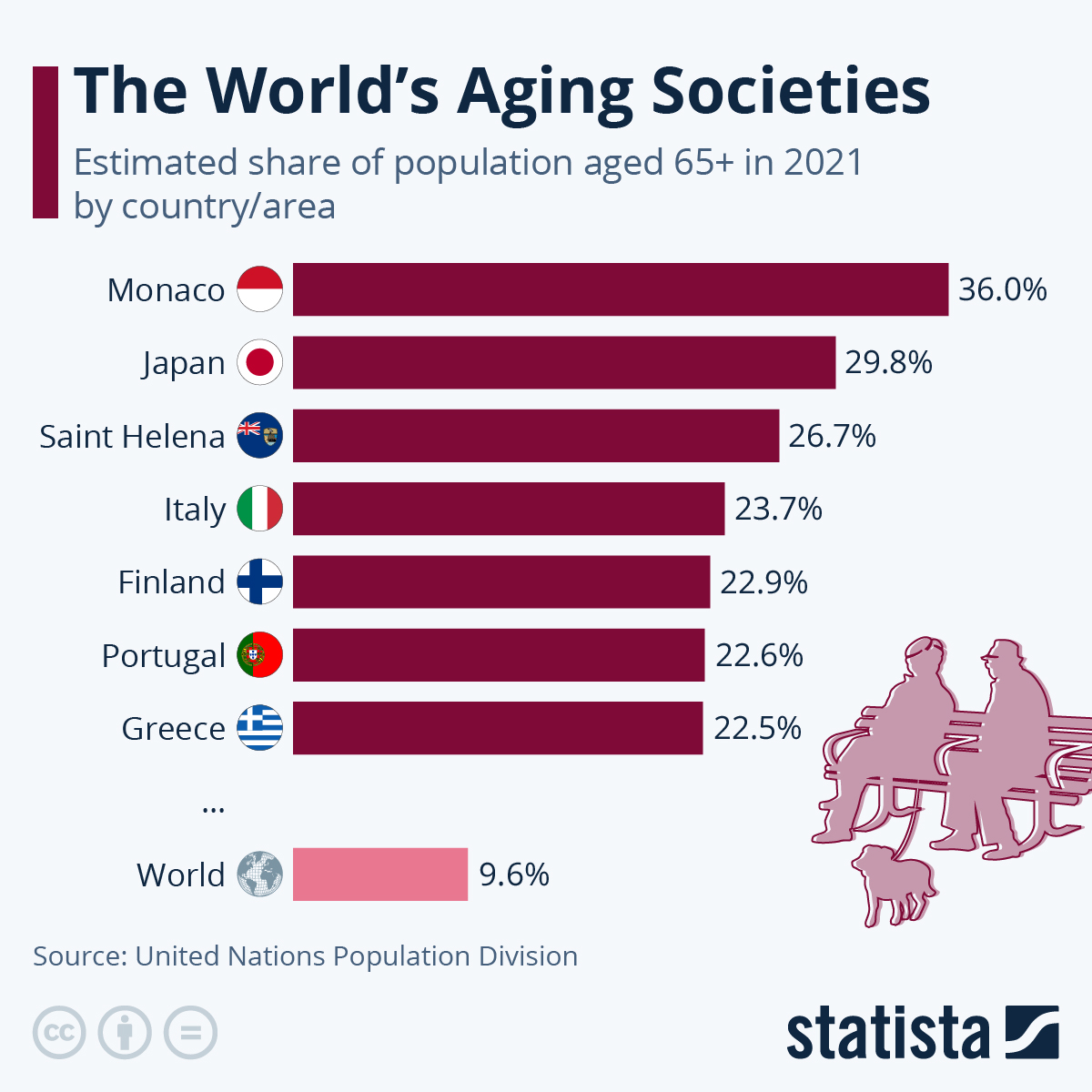AI for Elder Care: Supporting Aging Populations

As lifespans continue to increase and the aging population grows, innovative solutions are needed to address the challenges associated with the care of the elderly. Artificial intelligence (AI) can play a transformative role in elder care, providing valuable support to both seniors and their caregivers.

Applications of AI in Elder Care

AI can be utilized in various ways to improve the lives of elderly individuals and assist caregivers in providing efficient and comprehensive care:
-
Health Monitoring: AI-powered devices and wearables can continuously track vital signs, activity levels, and sleep patterns of seniors, enabling early detection of potential health issues and facilitating timely interventions.
-
Medication Management: AI algorithms can review and analyze medication instructions, issuing reminders and alerts to ensure accurate medication adherence. These systems can also identify potential drug interactions and side effects.
-
Cognitive Assistance: Conversational AI assistants can engage with seniors in meaningful conversations, providing social interaction, playing games, and even offering cognitive stimulation activities to help maintain cognitive function.
-
Mobility Assistance: AI-enabled mobility aids and exoskeletons can enhance mobility and independence for seniors with limited physical abilities, improving their quality of life and reducing the risk of falls.
-
Elderly Safety: AI-powered security systems can monitor homes for unusual activities, detect falls, and alert caregivers or emergency services promptly. This ensures a secure environment for seniors living alone.
Benefits of AI in Elder Care
The adoption of AI technology in elder care offers numerous benefits for both the elderly and those caring for them:
-
Improved Health Management: AI can empower seniors to take a more active role in managing their health, promoting self-care and preventing health deterioration.
-
Enhanced Quality of Life: AI applications can help seniors maintain their independence, engage in meaningful activities, and live fulfilling lives, even with age-related challenges.
-
Reduced Caregiver Burden: AI-based assistance can alleviate the burden on caregivers, allowing them to focus on providing emotional support and essential care tasks, rather than routine monitoring and repetitive tasks.
-
Lower Healthcare Costs: Effective use of AI can reduce hospitalizations, emergency room visits, and long-term care needs, resulting in cost savings for both individuals and healthcare systems.
-
Increased Access to Care: AI-powered technologies can reach remote areas and underserved communities, providing access to healthcare services for seniors who may lack access to traditional healthcare facilities.
Conclusion
AI has the potential to revolutionize elder care by offering innovative and effective solutions that address the unique challenges faced by aging populations. By leveraging AI, we can improve the quality of life for seniors, empower caregivers, and create a more supportive and inclusive society for the elderly. Embracing the benefits of AI in elder care is a step towards building a future where everyone can age with dignity, independence, and access to the care they need.# AI for Elder Care: Supporting Aging Populations
Executive Summary
The global population is aging dramatically, and with that, the demand for elder care is increasing rapidly. Traditional elder care models are struggling to keep up with this growing demand, leading to a shortage of qualified caregivers and a lack of affordable and accessible services. Artificial intelligence (AI) offers a promising solution to these challenges, with the potential to transform the way we care for our aging population. From AI-powered care robots to virtual health assistants, AI technologies are being developed to assist caregivers, improve the quality of life for seniors, and reduce healthcare costs. In this article, we will explore the transformative potential of AI in elder care, discussing its key applications and highlighting specific examples of how AI is already making a positive impact on the lives of seniors.
Introduction
As the world’s population ages, the need for elder care services is growing exponentially. While traditional caregiving models have served us well in the past, they are being pushed to their limits. The rising cost of care, shortage of qualified professionals, and increasing complexity of care needs are just some of the challenges that necessitate a new approach to elder care. AI, with its ability to process vast amounts of data, automate routine tasks, and provide personalized assistance, offers a unique opportunity to transform the way we care for our aging population. This article delves into various applications of AI in elder care, shedding light on how this technology is revolutionizing the industry and improving the lives of seniors.
AI-Powered Care Robots
One of the most visible applications of AI in elder care is the use of robots. These robots provide assistance with a wide range of tasks, from medication management to mobility assistance. They can also engage in social interactions, providing companionship and reducing feelings of isolation among seniors.
- Medication Management: AI-powered robots can dispense medications accurately and on time, reducing the risk of errors and improving adherence to prescribed regimens.
- Mobility Assistance: Robots can assist seniors with mobility issues by providing physical support, helping them get in and out of chairs, walking, and navigating stairs.
- Social Interaction: AI-powered robots can engage in conversations with seniors, play games, and provide companionship. They can also help seniors stay connected with family and friends through video calls and social media.
Virtual Health Assistants
Virtual health assistants are AI-driven software applications that provide personalized health-related information, reminders, and support. They can help seniors manage their chronic conditions, monitor their vital signs, and connect with healthcare providers.
- Health Information: Virtual health assistants can provide seniors with accurate and up-to-date information on diseases, medications, and healthy lifestyle choices.
- Medication Reminders: These assistants can send timely reminders to seniors to take their medications, ensuring adherence to prescribed regimens.
- Vital Signs Monitoring: Virtual health assistants can monitor vital signs such as heart rate, blood pressure, and blood sugar levels, and alert seniors and their caregivers of any abnormalities.
- Healthcare Provider Connection: Virtual health assistants can facilitate communication between seniors and their healthcare providers through secure messaging, video calls, and appointment scheduling.
AI-Enabled Fall Detection and Prevention
Falls are a major concern for seniors, often leading to serious injuries and even death. AI-powered systems can detect falls in real-time and alert caregivers immediately. They can also be used to identify risk factors for falls and develop personalized prevention plans.
- Fall Detection: AI algorithms can analyze data from wearable sensors to detect falls with high accuracy. These systems can distinguish between falls and other activities, such as sitting down or bending over, reducing false alarms.
- Risk Factor Identification: AI can analyze data from sensors, electronic health records, and lifestyle surveys to identify risk factors for falls, such as balance problems, gait abnormalities, and medication side effects.
- Prevention Plans: Based on identified risk factors, AI can generate personalized prevention plans that include exercises, lifestyle modifications, and medication adjustments.
AI-Driven Dementia Care
Dementia is a debilitating condition that affects millions of seniors worldwide. AI is being used to develop tools that can help diagnose dementia early, monitor its progression, and provide personalized care for patients.
- Early Diagnosis: AI algorithms can analyze brain scans and other data to identify early signs of dementia, allowing for timely intervention and treatment.
- Progression Monitoring: AI can track the progression of dementia over time, helping clinicians monitor the effectiveness of treatment and make necessary adjustments.
- Personalized Care: AI can help develop personalized care plans for dementia patients, taking into account their individual needs, preferences, and stage of the disease.
AI for Elder Care: The Future is Bright
AI has the potential to revolutionize elder care, transforming it into a more efficient, effective, and compassionate system. As AI technology continues to advance, we can expect to see even more innovative applications that improve the quality of life for seniors and empower caregivers. From self-driving wheelchairs to AI-powered assistive living environments, the future of elder care is bright with possibilities.
Keyword Phrase Tags
- AI in Elder Care
- AI-Powered Care Robots
- Virtual Health Assistants
- AI-Enabled Fall Detection
- AI-Driven Dementia Care

This article provides a comprehensive overview of the role of AI in elder care. The use of AI to enhance the quality of life for elderly individuals is a promising development that has the potential to revolutionize the way we care for our aging population. From fall detection systems to medication management, AI is proving to be a valuable tool in supporting the well-being of seniors. The ethical considerations surrounding the use of AI in elder care are also discussed, ensuring that the adoption of this technology is done in a responsible and respectful manner.
This article is full of crap. AI is just a fad that will never amount to anything. It’s a waste of time and money to even think about using it in elder care. The elderly are better off with traditional care methods that have been proven to work.
I found this article to be very informative. It provides a clear and concise overview of the current state of AI in elder care. The examples of how AI is being used to improve the lives of elderly individuals are particularly inspiring.
I disagree with the author’s claim that AI is the answer to all of our problems in elder care. While AI can certainly be a helpful tool, it cannot replace the human touch. There is no substitute for the compassion and empathy that a human caregiver can provide.
I can’t believe someone actually wrote an article about AI in elder care. This is the most ridiculous thing I’ve ever heard. AI is for robots, not for people. The elderly need real care, not some fancy technology.
I’m not sure what’s worse, the fact that this article was written or the fact that people actually believe this AI nonsense. AI is a dangerous technology that has no place in elder care. It’s only a matter of time before it starts taking over the world and enslaving humanity.
AI in elder care? That’s the best joke I’ve heard all day. AI is for nerds and geeks, not for the elderly. The elderly need real care, not some fancy technology.
This article raises some important questions about the use of AI in elder care. While AI has the potential to improve the lives of elderly individuals, it is important to consider the ethical implications of using this technology. We need to ensure that AI is used in a responsible and respectful manner that protects the privacy and dignity of the elderly.
I’m not sure how I feel about using AI in elder care. On the one hand, it has the potential to improve the lives of elderly individuals by providing them with assistance with daily tasks and access to information. On the other hand, I’m concerned about the ethical implications of using AI in this way. We need to make sure that AI is used in a responsible and transparent manner.
This article is biased and inaccurate. The author clearly has a pro-AI agenda and fails to present a balanced view of the use of AI in elder care. The author fails to mention the risks and dangers of using AI in this way, such as the potential for job displacement and the erosion of human interaction.
I can’t believe people actually take this AI stuff seriously. It’s just a bunch of hype and nonsense. AI is never going to replace human caregivers. The elderly need real care, not some fancy technology.
This article is a must-read for anyone interested in the future of elder care. AI has the potential to revolutionize the way we care for our aging population, and this article provides a comprehensive overview of the current state of AI in elder care. The author does a great job of explaining the benefits and risks of using AI in this way, and provides a balanced view of the ethical considerations involved.